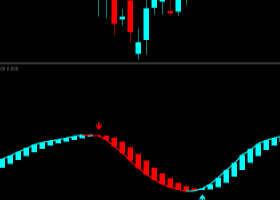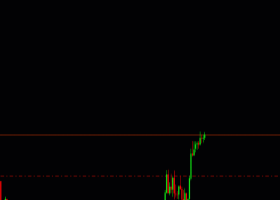
Shanghai Index fall is similar to 1929 collapse; may be positive for gold - Analysts
Today's headlines will tell you what's going on in China: the country is in a classic speculative bubble that has been popped. Since June 18th, China lost about $5 trillion in value.
The benchmark Shanghai Composite was down over 32 percent since hitting a seven-year peak of 5,166.35 on June 12.
The contagion spread to Hong Kong's Hang Seng which ended nearly 6% lower after plunging as much as 8 percent.
"For the Hang Seng, there is a contagion impact as many of the
Chinese investors who went into A-shares also bought into the H-share
market and by association, Hong Kong will rise and fall according to the
fortunes of China," Wong Sui Jau, general manager at Fundsupermart.com, said in an interview with CNBC.
"However, while it is affected by the volatility, the downside should be a lot less than China’s because the valuations of H-shares remain much lower than A-shares."
There is a speculation going on now that Beijing is buying into big bank and oil/energy stocks in hopes to halt the bleeding.
"Sell-what-you-can" syndrome is what investors are now captured by. Those who have been banned from selling equities that have been
suspended on the Shanghai exchanges need cash and are panicking. Thus,
other “good” stocks that they own are hitting the market, pushing the
price of such good stocks down as well. Of course, this adds to the
general environment of instability and invites more emotional selling.
Global markets
In this globally interconnected world, this epidemy is spreading to U.S. markets and to Europe which is already shaken by Greece.
China's investors, especially organizations, are selling U.S.-listed stocks to receive cash in order to cover bets they made on stocks back home.
European indices were generally higher - a signal of faith in the bloc's economic strength. Lenders, insurance companies and other financial providers led the charge while auto and equipment sectors fell back, says analyst Gary Wagner. Despite Greek turmoils, European markets may shrug off the crisis and remain stable for a while.
The euro's recent strength against the dollar showed it had been oversold in the recent days - and not a return of credibility, says Wagner.
However, some analysts say the rout may be positive for gold, which has been loosing in the recent weeks.
"Given that one of the reasons for gold's tepid demand in China is due to the strong equity bull market, questions are now raised if the current bearish 'A' share market could spark Chinese interest in gold once more," Howie Lee, investment analyst at Philip Futures, wrote in a note on Wednesday.
Victor Thianpiriya, commodities strategist at ANZ, points that the Chinese collapse may be positive for gold demand, adding that "equity investments as a portion of total wealth in China is quite low."
"Anecdotally, speaking to Chinese jewelers over past few months,
one of the big reason that jewelry demand has been weak us because of
the rising equity market," he said.


